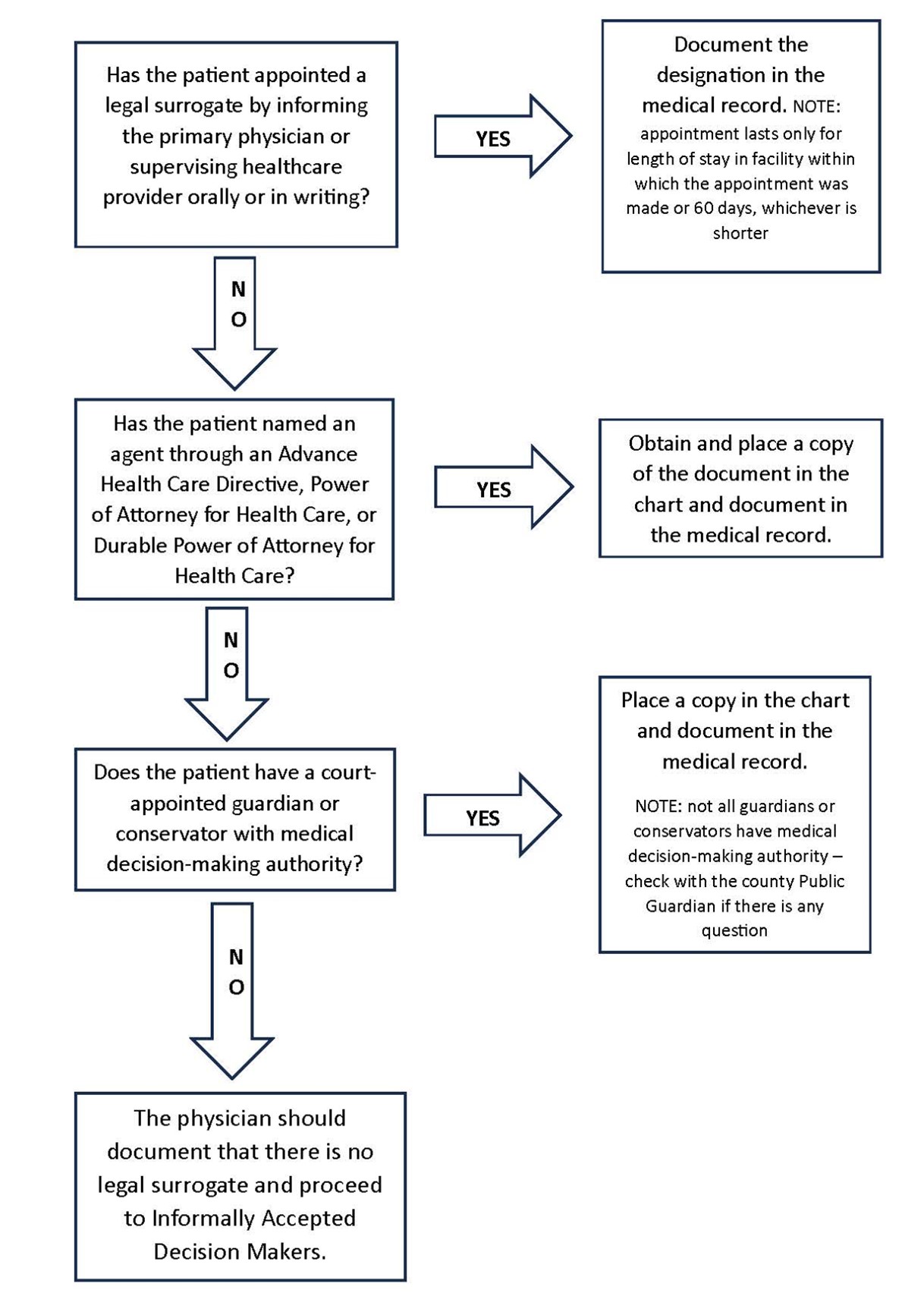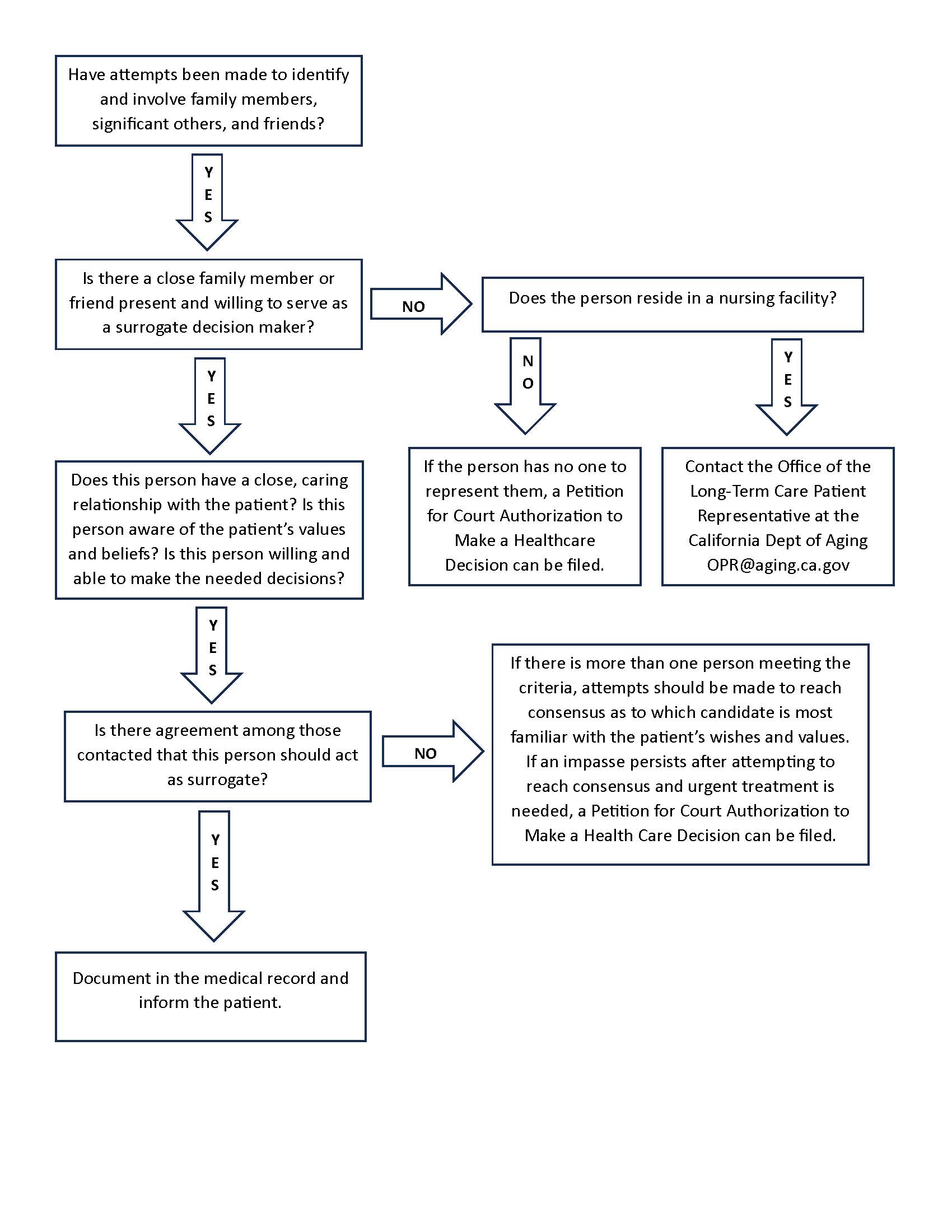The patient with decision-making capacity is the appropriate decision maker unless the patient has delegated that authority to another.
For patients who have lost decision-making capacity, the following hierarchy should prevail:
Legally Authorized Decision Makers

Informally Accepted Decision Makers

Decision Making Standards for All Surrogates
(from the California Health Care Decisions Law, Probate Sec.)
Both legally authorized and informal/default decision makers are to use the following decision-making standard:
- Healthcare decisions must be in accord with the patient’s individual healthcare instructions, if any, and other wishes to the extent known to the decision maker.
- If the patient’s wishes are not known, decisions are to be made in accord with the decision maker's determination of the patient’s best interest in light of the patient's personal values and beliefs to the extent they are known.
- In the rare situation where a patient has a conservator, has not made an advance directive, and is not terminally ill, permanently unconscious, or in a permanent vegetative state, decision to forgo life-sustaining treatments must be supported with clear and convincing evidence of the patient’s wishes or personal values, or best interests concerning such treatment.
For a detailed pdf of the CCCC guide to Determining the Appropriate Decision Maker, click here.
Prepared by Coalition for Compassionate Care of California